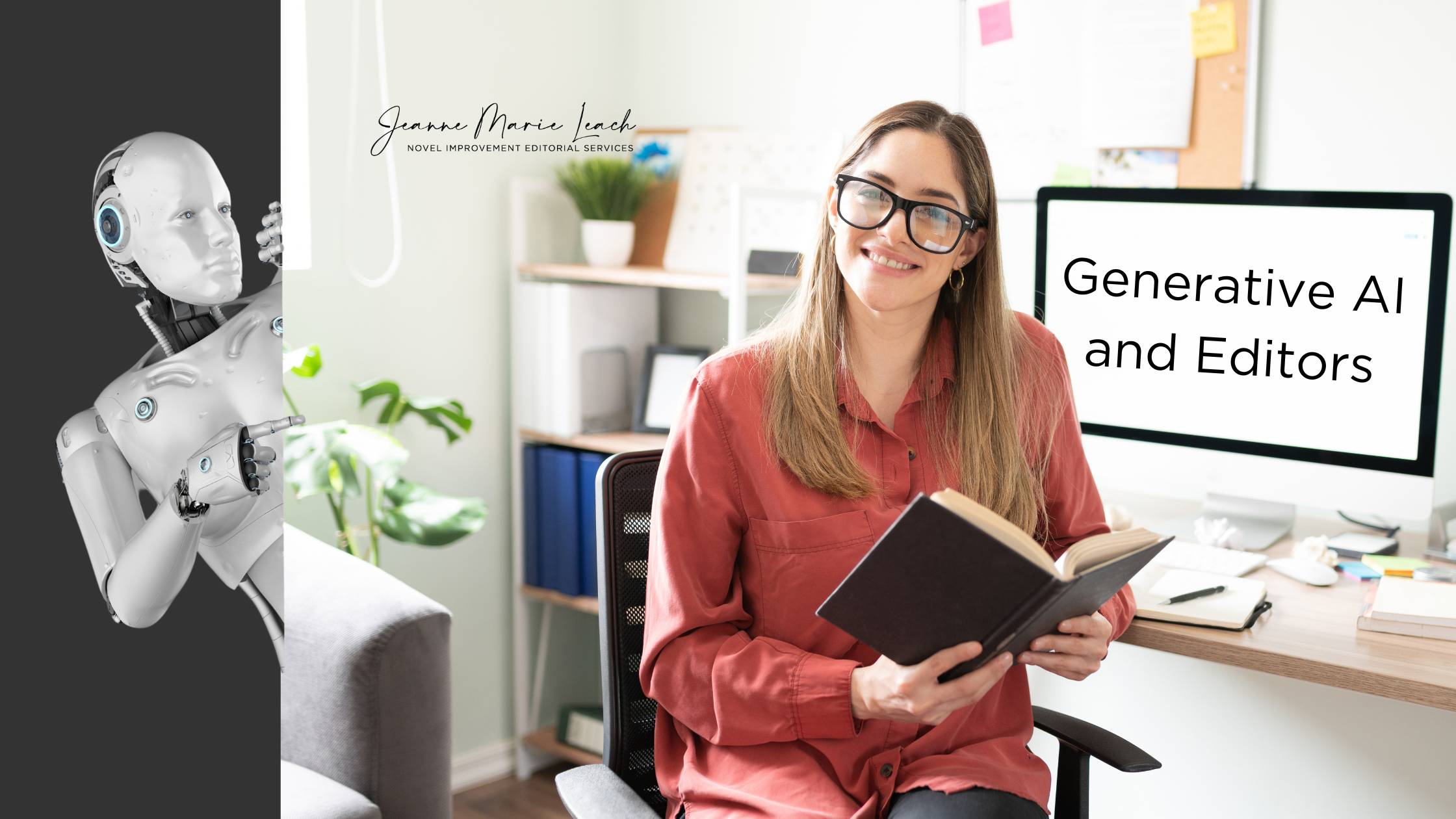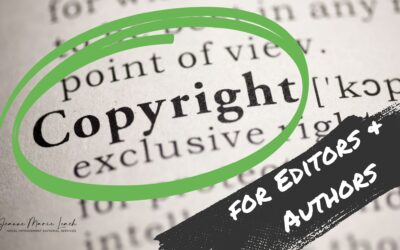The information presented here is taken from several workshops I attended at the 2024 PENCON editor’s conference. I’m merely passing on some interesting things I learned at the conference. This was presented by a copyright lawyer who has been researching generative AI for over a year and is meant to be a summary of basic AI usage.
While the information presented at the conference covered a lot about the subject, I’m only going to pass on what I feel is important for authors and editors to know about AI.
Definitions (from Merriam Webster’s Dictionary)
- Artificial intelligence (AI): the capability of computer systems to imitate intelligent human behavior.
- Generative AI: artificial intelligence that is capable of generating new content (such as images or text) in response to a submitted prompt (such as a query) by learning from a large database of examples.
- Algorithm: a procedure for solving a mathematical problem in a finite number of steps that frequently involves repetition of an operation; a step-by-step procedure for solving a problem or accomplishing some end.
What surprised me most was to find out that the concept of AI has been around for almost seventy years. I won’t go into it here because my purpose is to help authors and editors to understand that people are now putting story ideas into the computer and allowing generative AI to write a story for them.
Can generative AI replace editors?
A couple editors in The Christian PEN: Proofreaders and Editors Network have recently received requests for editing from “authors” who “wrote” a story using generative AI.
This is new territory for most editors and authors and creates several questions. The main issues are whether material generated from AI constitutes copyright infringement or plagiarism, and can generative AI materials be copyrighted?
Also, is the right to publicity violated when an author uses someone else’s name and image to sell a book they did not write? This happens most with famous and well-known authors where generative AI is used to write books that are then published under an author’s name.
While these AI books may be written well, publishers are finding a few disparities between human-written books and generative AI books.
Human author’s books contain rich, personal dialogue and deep emotions. AI generated books contain no writing flaws, is consistent, and timely. But AI cannot figure out what to do with things like metaphors. AI also cannot be specific in language differences such as a southern accent and words specific to that area of America. It does catch how language should be used, grammar errors, and catches when sentence structure is too similar from one to the next. But it cannot instruct the author on how to make it “sound” better.
This leads to the question of whether generative AI can replace human editors. The answer is “not yet.” Rather than become fearful, editors can offer things AI can’t.
Questions Editors Should Ask
- Do I offer my clients “value?” AI is not human, but you are made in the image of God. You bring the human touch no machine can replace. By relying on God in our work, what we do won’t be expendable, and our work will give life to our clients’ manuscripts.
- How can you help authors improve their work? Editors are already helping authors improve the quality of their writing. As AI-generated content increases, the need for independent thinking and wisdom from human authors will be needed. Publishers will likely put greater emphasis on authors’ voice, and the demand for new, original content will still be there.
Common Pitfalls of Generative AI
As editors, we can keep our author’s books from being just okay.
We need to look out for these pitfalls if we ever do edit a manuscript written by generative AI, particularly in fiction:
- Generative AI contains biases because its human creators have biases.
- Generative AI is always factually correct. Flawed characters are not.
- Generative AI will tend to produce stereotypes in fiction. Humans are a complex mixture of upbringing, education, financial classes, emotions, and a myriad of other factors that AI cannot “comprehend.”
- Generative AI will tend to imitate what has come before. It cannot understand science fiction worlds, the paranormal.
- Generative AI lacks the human touch.
How Editors Can Navigate the AI Takeover
Some of the things we can include in editing agreement letters or contracts are the following:
- A definition of generative artificial intelligence as well as artificial intelligence.
- A statement detailing your decision about editing AI-generated material.
- A statement requiring the author to disclose their use of generative AI in writing.
- A statement that the author is fully responsible for any legal ramifications involving their use of generative AI.
- A statement that the author is fully responsible for all factual accuracy, including that of AI-generated material.
Write down your unique strengths as an editor. What are the things God has uniquely gifted you to do? Do your best to articulate this so that you can clearly show clients and potential clients why they should choose you over artificial intelligence.
I am not an attorney or lawyer and the above are suggestions only and not legal advice. I recommend that you consult with an attorney or lawyer regarding your editorial agreement letters or contracts.
In my next blog post, I will cover what PENCON presenters revealed about Generative AI and copyright laws. This will be useful information for authors and editors.










